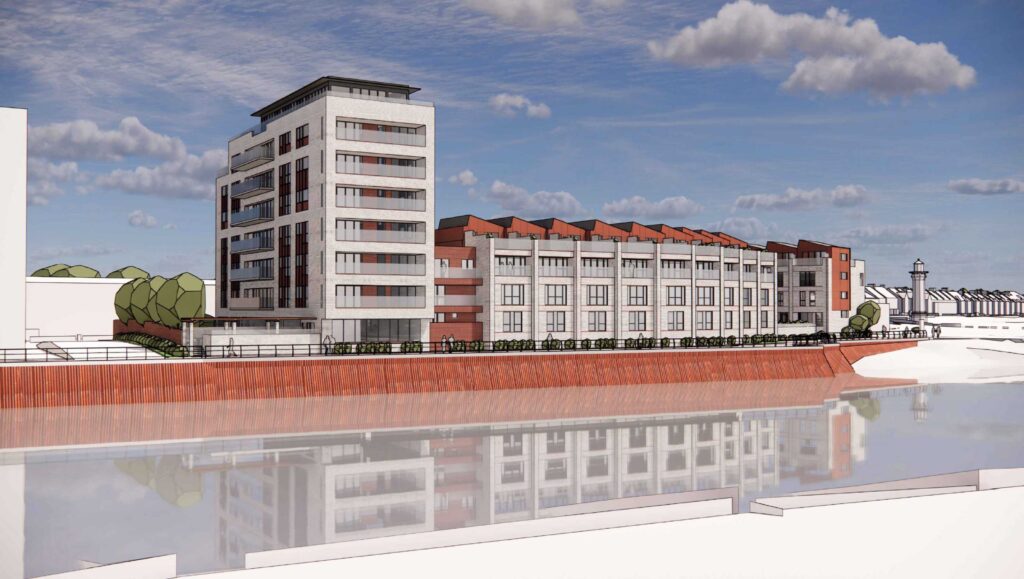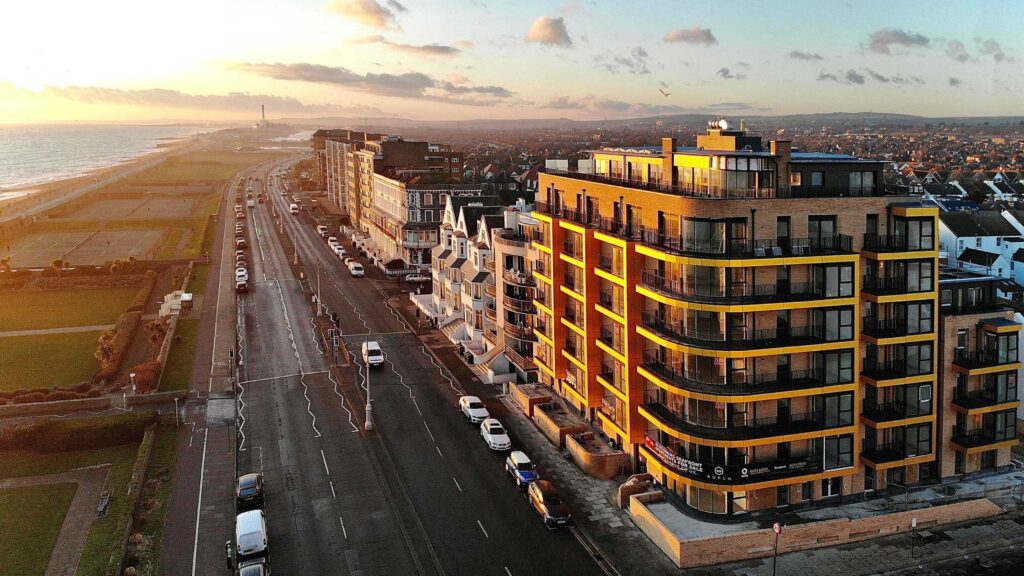As a property developer, the frustration at how badly the system operates has frequently led me to curse the role democracy plays in it.
Removing all those pesky NIMBYs and others looking to thwart any kind of the progress we so badly need seems like the only way to get things done.
But then a few weeks ago, I read about how Ireland reformed its abortion laws some years back, introducing more ordinary (as in non-expert) people into the process. And now I see it’s not democracy itself that’s the issue, it’s just the way we apply it.
Here, the way the planning system works for major applications is that the developer works up a scheme that they take to planning officers – professionals who work for the relevant authority.
Over the following months, via “pre-apps” (pre-application meetings), public consultations, revisions and lots of reports, the developers try to shape the application to a point at which the officers can say: “Yes.”
A yes means: “We can recommend this for approval because it complies with planning law and our understanding of the demands of (the majority of) the local community”.
It takes a lot of work – and time and money – to get any major scheme to that point, with all the regulations that this country has.
But that’s ok. It’s important that these things are done well and that officers are there to ensure that developers comply with the rules.
At that point, the application goes to the council’s Planning Committee, made up of councillors who have been elected to represent the people who live in their ward.
Officially, members of the Planning Committee are there to quiz the officers and developers to ensure compliance with law and policy. In fact, that’s rarely what happens.
The reason for that is frequently obvious. Committee members are – in legal terms – “conflicted”.
Supposedly, they can refuse an application recommended for approval only if they find an error in the officer’s recommendation – that is, an application that doesn’t comply with a relevant law or policy.
In reality, they are often looking for reasons to say no because they have a number of residents pressuring them to do so. Residents who are very vocal. Sometimes for good reason. At other times for, let’s say, NIMBY-ish reasons.
Also, and by no means does this apply to all Planning Committee members, some of them neither understand planning law nor care to try.
They seem to be there to score political points and play to the crowd. Some of those reading this may be all for that. Let’s face it, us developers are hardly popular.
But we do have a housing crisis – and playing to a vocal minority while housing supply gets worse (and more and more unaffordable) doesn’t seem like a very good idea.
We recently had an application in Shoreham refused, twice, despite being recommended for approval both times.
The second time, one of the councillors said that there wasn’t enough parking because she could count only 25 cars on the drawing.
It was pointed out that these were merely indicative and that there were actually more than 50 spaces – the architect had just dotted around a few cars to help visualise the plans.
She remained unpersuaded. Another member claimed that “the terraced houses were too close together”. Sometimes, it really is beyond parody.
We went to appeal and not only won but the planning inspector awarded us costs.
The inspector said that “members failed to fully grasp the need to balance … issues in a rational and logical way” and members had “behaved unreasonably”.
This meant that the council had to pay all our legal fees as well as its own. The two sides’ bill will top £100,000 and was completely avoidable. That’s a poor use of a lot of council tax.
What can we learn from this continual debacle? Well, it shows that the committee format frequently does not work when uninformed politicians with axes to grind hold the power to refuse applications against their own employed professionals’ best advice.

This is what then brings me to Ireland’s abortion law reform. Obviously, it was a hugely contentious subject with firmly held and conflicting opinions on all sides. And it was a subject that politicians were ill-equipped to decide.
Instead, a hundred randomly selected citizens from every walk of life were chosen to consider the issue.
Led by a chairperson, they listened to dozens of experts, read hundreds of submissions, heard each other out and compromised effectively. This led to a recommendation that was later endorsed by referendum.
We need something like this. In the current planning system, debate is stifled at committee. A brief pitch from residents and another from developers is followed by the members arguing a bit among themselves. No “interaction” is permitted.
Conversely, in the public hearing that decided the appeal, an open dialogue took place between residents, council officers and ourselves as developers over the course of two days.
A lot was learnt by all sides and it was clear that the issues that residents had were often unfounded and the reason for refusal wasn’t what their problem was at all.
Personally, I enjoyed the process because I really do want to engage with people to do a better job of explaining why we propose what we propose, how the system works, what compromises we make and how we can try to take public views on board to build better homes.
But we can’t waste three years, two applications, countless reports and £100,000 of council tax payers’ money every time we want to build 40 or so houses and flats.

We do have the basis of a good system with hard-working officers and laws in place to protect the environment, to ensure compliance with traffic management and everything else.
We don’t want to lose that. We want public consultation. But at the moment it can seem as though the vast majority of those involved are there to say no and don’t actually engage.
Let’s select residents – a bit like jury service – to help shape planning policy in each area where they could be led by an independent expert, like a planning inspector.
They could then consider evidence and work out how we can build more homes in a way that locals want and in a way that developers can actually deliver.
All too frequently, we see residents object to housing when what they need and want is: housing. It’s not the principle of more housing. It’s the method of delivery being tailored to each situation.
The only real people to guide how that happens are real people, working together with developers and experts, all discussing, all compromising and all finding the solutions that we want, not the petty arguments and wasted resources no one needs.
Ed Deedman is a director of Cayuga Homes.









Well what can one say, at last someone who has the common sense to explain the process and come up with an alternative solution. One that will not only provide better communication between the parties involved, but will also save time and money. I hope that this proposal will be listened to and not fall upon deaf ears!!
Thanks, I appreciate the comment.
Mr Wants to dispense with all democratic process and instead rely on a selection of randomly chosen local citizens. Good luck with that! When you look around our city you see many monstrous buildings that should never have been allowed. I wonder how many were passed on appeal and against the wishes of local residents?
When planning refusals by local councils can be overruled by corrupt government ministers then the planning laws certainly need looking at. Local government know that they don’t have the ultimate power to reject developers proposals. So we see ridiculous schemes allowed with no low cost provision.
The system you are describing is a form of sortition – the same sort of process which our council led at the time by the Labour group – used for the city climate assembly. All positive stuff which seemed to recognise the scale of the problem and the structural issues which make it hard for politicians to make rational choices over something so existential and overwhelming as the climate crisis
Scroll forward to now and the current Labour Party seem to have forgotten all about it and have a budget which proposes destructive environmental measures, ignores the clear sustainable transport measures propped by the assembly and offers no sense of ambition to take forward this work.
You can bolt on inclusive and engaging democratic tools as much as you like, but if it in the end is left to a centralised and controlling political leadership willing to break any commitment as it chooses – and who obviously treated the citizens assembly as performative and optional – then I don’t suppose it will make much difference.
Btw – I suspect that this opinion piece is also a bit performative, and would oppose and measures to let developers avoid democratic scrutiny. Problems with achieving planning consent are so far down the list when looking at the housing crisis that they wouldn’t even reach the top 10.